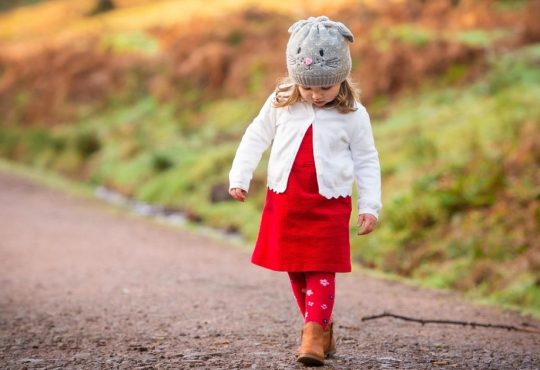The fashion industry is at a crossroads where its significant environmental and social impacts demand urgent attention. From excessive water usage to unethical labor practices, the consequences of fast fashion are becoming impossible to ignore. Fortunately, the rise of ethical and sustainable fashion brands allows consumers to make a difference through their purchases. This movement toward conscious consumption is more than a passing trend—it’s a necessity. As awareness grows, people begin scrutinizing their wardrobes and shopping habits, seeking alternatives that align with their values. Sustainable fashion means not only looking good but also doing good.
Defining Sustainable Fashion
Sustainable fashion goes beyond trendy buzzwords. It represents a commitment to practices that benefit the planet and its people. Here’s what it entails:
- Eco-Friendly Materials: Brands dedicated to sustainability often use materials like organic cotton, recycled polyester, and innovative fibers such as Tencel. These materials reduce resource consumption and limit environmental harm.
- Fair Labor Practices: Ethical brands prioritize their workers’ well-being. It includes ensuring safe working conditions, fair wages, reasonable hours, and opposing exploitative practices.
- Ethical Sourcing: Transparent supply chains are key to ethical fashion. It means tracing materials back to their origins and holding suppliers accountable for sustainable and humane practices.
- Minimal Environmental Impact: Sustainable brands focus on reducing their ecological footprint. They achieve this through energy-efficient manufacturing, water conservation, waste minimization, and recyclable packaging.
By embracing these principles, ethical brands aim to redefine fashion as a force for good.
14 Ethical and Sustainable Fashion Brands to Watch
Various innovative brands are leading the way for those seeking conscious consumption. Below is a curated list of ethical and sustainable fashion pioneers.
Clothing Brands
1. PANGAIA
PANGAIA is a materials science company and fashion brand renowned for using innovative, sustainable materials. They create eco-friendly textiles by incorporating fibers from seaweed and fruit by-products, such as pineapple and banana leaves. The brand’s commitment to sustainability extends to developing proprietary materials like FRUTFIBER™, a blend of bamboo lyocell and fruit fibers, and C-FIBER™, which combines eucalyptus pulp and seaweed powder to produce soft, silky fabrics. PANGAIA’s approach seamlessly integrates cutting-edge technology with fashion, offering consumers environmentally conscious choices without compromising style.
2. Vuori
Vuori is a performance apparel brand with climate-neutral certification, reflecting its commitment to sustainability. The company focuses on creating high-quality activewear that merges technical performance with a West Coast aesthetic. Vuori blends ethical manufacturing with eco-conscious materials, proving high-performance fashion can thrive without compromising environmental integrity or style. Their product range includes versatile pieces designed for both athletic pursuits and everyday wear, appealing to consumers seeking functionality and eco-consciousness.
3. Finisterre
Inspired by the ocean, Finisterre is a UK-based brand dedicated to creating sustainable apparel for those who share a love for the sea. The company places a strong emphasis on marine conservation, developing products that are both functional and environmentally friendly. Finisterre champions sustainability by harnessing recycled materials and pioneering innovative fabrics, all while maintaining unwavering transparency in its production practices. They further demonstrate their commitment to sustainability by launching initiatives like wetsuit recycling and collaborating with environmental organizations.
4. Patagonia
Patagonia is a trailblazer in eco-conscious outdoor gear, combining decades of environmental advocacy with an unwavering dedication to ethical labor standards. The company integrates sustainability into every aspect of its business, from using recycled materials to advocating for policy changes that protect the planet. Patagonia’s Worn Wear program encourages customers to repair and reuse products, extending the life of their gear and reducing waste. They have redefined industry standards by embedding ethical values and environmental stewardship into their core, inspiring consumers and competitors to prioritize sustainability.
5. Passenger
Passenger is a UK-based brand specializing in responsibly sourced materials to create stylish and sustainable outdoor clothing. They design their products for adventure and everyday wear, drawing inspiration from travel and nature. Passenger minimizes its environmental impact by crafting products from recycled and organic materials while eliminating plastic from its packaging. The brand amplifies its eco-conscious mission by collaborating with reforestation initiatives, planting trees to restore natural habitats, and combat climate change.
6. Story MFG
Story MFG is a socially conscious brand emphasizing fair trade and ethical production, creating unique, handcrafted garments. Their approach to fashion is rooted in sustainability, utilizing natural dyes, organic fibers, and traditional crafting techniques. Story MFG collaborates with artisans worldwide, ensuring fair wages and preserving cultural craftsmanship. They create collections that combine modern design with timeless, handcrafted quality, giving them a distinct aesthetic.
7. Greater Goods
Greater Goods is a brand that champions upcycling, transforming recycled materials into one-of-a-kind pieces. Their commitment to sustainability involves sourcing discarded fabrics and textiles and repurposing them into new, functional products. By diverting waste from landfills, Greater Goods contributes to a circular economy and promotes environmental responsibility—their unique approach results in products that are not only eco-friendly but also distinctive in design.
8. Yes Friends
Yes Friends is a brand that combines ethical manufacturing with sustainable materials to offer affordable, eco-friendly clothing. It is committed to transparency, providing insight into its supply chain and production costs. Yes Friends ensures fair wages and safe working conditions for its workers, which aligns with its ethical values. Its product range focuses on wardrobe essentials, making sustainable fashion accessible to a broader audience.
9. Arvor Life
Arvor Life is dedicated to plastic-free and ocean-friendly fashion, supporting marine conservation efforts through its products. The brand utilizes sustainable materials and practices to minimize environmental impact, particularly concerning ocean pollution. Arvor Life’s designs are inspired by coastal living, reflecting a deep connection to the sea. They extend their sustainability efforts to packaging by ensuring it remains entirely plastic-free.
10. Kotn
Kotn provides high-quality organic cotton basics, focusing on sustainability and ethical sourcing. The brand works directly with cotton farmers in Egypt, ensuring fair wages and ethical labor practices. Kotn’s commitment to quality and sustainability is evident in its timeless designs and durable products. The company also invests in the communities it works with, funding schools and infrastructure projects to support education and development.
11. Amour Vert
Amour Vert, meaning “green love” in French, delivers eco-friendly and stylish clothing designed to last. The brand emphasizes sustainable materials, such as organic cotton and Tencel, and employs non-toxic dyes. Amour Vert employs zero-waste design by repurposing or recycling fabric scraps. Their commitment to sustainability also includes planting a tree for every T-shirt sold and contributing to reforestation efforts.
Accessories Brands
12. House of Marici
House of Marici is a London-based luxury accessories brand pioneering plant-based leather alternatives. The brand, founded on Earth Day, April 22, 2020, emphasizes a circular design philosophy and regenerative mindset. Their products are crafted from Piñatex, a sustainable material made from upcycled pineapple leaf fibers, offering an eco-friendly alternative to traditional leather. Marici’s commitment to ethical innovation is evident in its timeless designs that blend groundbreaking materials with exceptional craftsmanship. Their dedication to sustainability has been recognized by prestigious retailers, with exclusive launches in stores like Selfridges.
13. BOTTLETOP
Founded in 2002 by Cameron and Roger Saul, BOTTLETOP is a forward-thinking accessories label that uses upcycled materials to create beautiful bags, jewelry, scarves, and other accessories. The brand began with bags made from recycled bottle tops, inspiring its name and the development of the BOTTLETOP atelier in Brazil. BOTTLETOP’s commitment to sustainability is evident in its use of eco-friendly materials, including upcycled aluminum tabs, açaí seeds, and zero-deforestation leather. The leather hides used in their designs are sourced from sustainable farms and treated by Couro Quimica, a tannery-rated Gold standard by the Leather Working Group. By merging sustainable design with social impact projects, BOTTLETOP empowers artisans and supports health education programs, positively impacting people and the planet.
14. Bird Eyewear
Bird Eyewear is an award-winning brand known for its beautifully handcrafted frames made from recycled, renewable, and sustainable materials. They demonstrate their commitment to sustainability by using low-carbon bio-acetates, recycled metals, and repurposed materials. As the highest-scoring B Corp in the eyewear industry, Bird Eyewear has made its social and environmental impact available for all to see, demonstrating transparency and accountability. With every pair sold, they provide solar lights to underserved communities, combining ethical eyewear with a meaningful social impact. Their designs blend traditional aesthetics with future-friendly materials, offering consumers stylish options that are kind to the planet.
How to Shop More Sustainably
Transitioning to sustainable fashion is easier than it seems. By adopting thoughtful habits, you can align your wardrobe with your values.
- Conscious Consumerism: Instead of succumbing to fast fashion’s allure, focus on buying less but choosing better. Choose high-quality pieces that blend timeless durability with enduring style. Timeless garments elevate your wardrobe and reduce waste over the long term.
- Secondhand and Vintage Shopping: Thrift stores, consignment shops, and online marketplaces are treasure troves of unique, sustainable finds. Embracing vintage fashion reduces your carbon footprint and allows you to showcase one-of-a-kind pieces with history and charm.
- Clothing Rental: Consider renting instead of buying for special occasions or even everyday wear. Clothing rental services let you enjoy fresh looks while significantly reducing environmental impact.
- Proper Care: Preserve the life of your clothes by washing them less often and choosing to air-dry whenever possible. Additionally, learn simple sewing techniques to repair and mend damaged items instead of discarding them.
Why Sustainable Fashion Matters
Every consumer decision creates a ripple effect. Supporting sustainable brands contributes to a broader movement for change. Ethical fashion helps reduce environmental damage, promotes fair labor practices, and fosters innovation in material science and design. Moreover, embracing sustainable fashion sends a message to the industry that conscious consumption is here to stay. The more consumers demand ethical practices, the more brands will feel compelled to adopt them.
The Challenges of Ethical Fashion
While sustainable fashion offers numerous benefits, it’s not without challenges. The higher cost of ethical clothing can be a barrier for many consumers. However, this upfront investment often translates to long-term savings as high-quality pieces last longer. Additionally, the accessibility of sustainable brands can be limited in certain regions, though online shopping is helping bridge this gap. For brands, maintaining transparency and balancing affordability with sustainability are ongoing struggles. However, the increasing demand for ethical products motivates companies to innovate and adapt.
Tips for Building a Sustainable Wardrobe
Creating a sustainable wardrobe doesn’t happen overnight, but small, consistent changes can lead to significant impact.
- Start with Essentials: Begin by replacing your everyday basics with eco-friendly alternatives. Brands like Kotn and Amour Vert offer sustainable staples for building a foundation.
- Declutter Responsibly: Donate, recycle, or sell clothing you no longer wear. This will clear your space and give your unwanted items a second life.
- Learn About Materials: Educate yourself about sustainable fabrics, and avoid conventional polyester and non-organic cotton. Opt for organic, recycled, or biodegradable options whenever possible.
- Support Local Brands: Purchasing from local ethical brands reduces shipping emissions and supports small businesses. Look for artisans and designers in your area who prioritize sustainability.
- Stay Informed: Follow blogs, podcasts, and social media accounts focused on ethical fashion. Being informed enables you to find new sustainable companies and make intelligent decisions.
The Future of Fashion
The shift toward ethical and sustainable fashion is more than a trend—it’s the industry’s future. Innovations in materials, such as lab-grown leather and biodegradable textiles, pave the way for a new fashion era. Additionally, as consumer awareness grows, brands are being held accountable like never before. Governments and organizations also take initiatives to regulate environmental practices and labor standards. This collective effort signals a promising shift toward a more equitable and sustainable fashion landscape.
Choose Ethical Fashion for a Sustainable Future
Adopting ethical and sustainable fashion is a journey, not a destination. Every conscious decision—choosing eco-friendly materials or supporting transparent brands—contributes to a brighter future for our planet and its inhabitants. This movement redefines fashion as more than self-expression—a powerful tool for change. Let your wardrobe reflect your values, and remember: every step toward sustainability, no matter how small, makes a difference.





